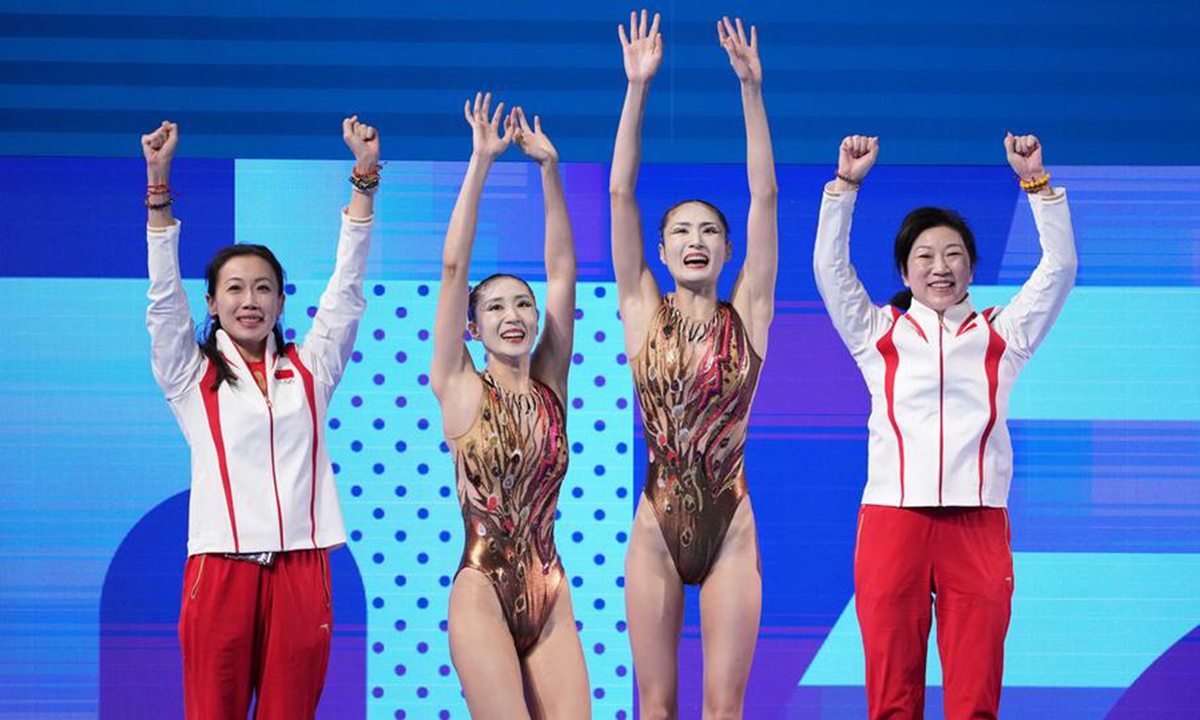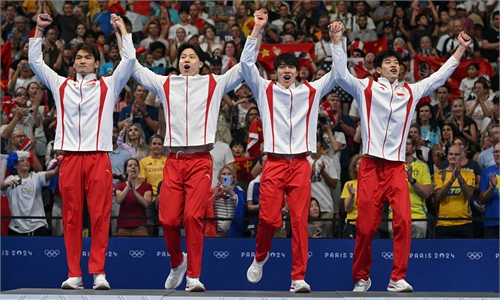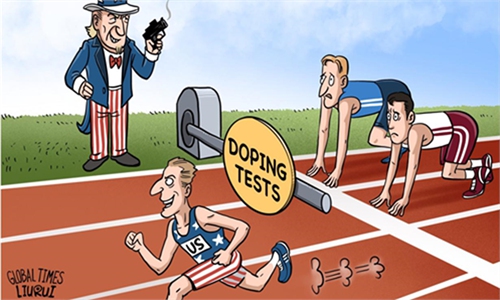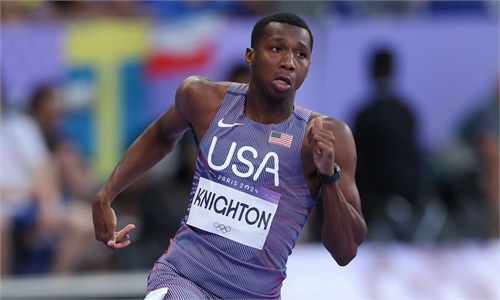Thoughts brought by the Olympic gold medal table will continue to resonate: Global Times editorial

Wang Liuyi and Wang Qianyi celebrate with their coaches after winning gold, Aug. 10, 2024. Photo: Xinhua
The Paris Olympics concluded on August 11 local time. The Chinese delegation achieved its best performance in overseas competition, winning 40 gold, 27 silver and 24 bronze medals and realizing a double harvest of athletic achievements and spiritual civilization. After the Tokyo Olympics, a stalemate of not knowing the final ranking on the medal table until the last day of competition has once again emerged between China and the US. NBC stated that "China becomes Team US' biggest Olympic rival." Graham Allison, a Harvard professor who proposed the "Thucydides Trap," expressed in a newly published article that China, "a nation that at the beginning of the century could not be seen in our rearview mirror," has now not only become the leading rival of the US in the Olympics but has also rapidly risen in nearly every other field - economy, technology, military - and "is now running right beside us or, in some cases, ahead."
It's no surprise that such sentiments arise within US public opinion. 40 years ago at the Los Angeles Olympics, the world was still overshadowed by the Cold War. 16 countries, including the Soviet Union, were absent, and the US team dominated the medal table, winning 83 gold medals - four times as many as second-place Romania, and the total number of medals was more than three times that of Romania. That event also marked China's first participation in the Olympics after rejoining the Olympic family, where the Chinese team won 32 medals, including 15 golds, ranking fourth in the gold medal tally. In contrast, at this Paris Olympics, more than 60 countries and regions won gold medals, and over 90 countries and regions earned medals. The globalization of competitive sports has shown unprecedented strength. Therefore, the changes in the Olympic achievements of China and the US should not be viewed in isolation; this shift itself is a reflection of an unstoppable historical trend.
China has done its best to win the gold medal with morality, style and cleanliness. At the Paris Olympics, Chinese athletes have made historic breakthroughs in many events. For example, twins Wang Liuyi and Wang Qianyi won the first championship in the artistic swimming duet free routine, incorporating many "Chinese-style" aesthetic elements in the competition. Zhang Xiaohuan, head coach of the Chinese team, stated that their goal was not only to reach the highest podium, but also to "amaze the audience," ensuring that referees from different cultural backgrounds could appreciate their music and choreography. In the rhythmic gymnastics event, the Italian team's impressionist-style competition uniform and the Bulgarian team's competition uniform of "the land of roses" both carry distinct cultural colors and regional characteristics. The significance of the Olympics at this moment transcends the idea of winning or losing, becoming an excellent stage for mutual learning among civilizations. The praise from American media after the competition, including the Associated Press' evaluation that the artistic swimming gold "was a big medal for China, and also a step forward for the sport," proves the valuable value of this exchange and mutual learning.
Chinese athletes certainly aim for good results on the Olympic stage, but this is not all that China brings to the Olympics and global sports development. After Zheng Qinwen won the championship, the Women's Tennis Association immediately congratulated her, showing their anticipation for such a Chinese star. In recent years, the development of tennis in China has been rapid and China now ranks second in the world in terms of the number of tennis courts. This gold medal will undoubtedly become a new booster.
Table tennis was born in the UK, but has flourished in China, as many high-level athletes from other countries come to China to improve their skills in the league, and Putonghua has almost become the "official language" of the players. Many young table tennis players around the world see Chinese players as idols. In marathon races, leading athletes can lead other athletes to speed up and sprint to the finish line together. China does not shy away from competition, but also values cooperation and contribution. It practices the Olympic motto of "faster, higher, stronger - together" through its own development and performance, competing fairly and exchanging friendly with athletes from various countries and regions around the world, improving skills and fostering friendships, making the Olympics a bridge for mutual exchange and common development.
China and the US currently hold the top two positions in the Olympic gold medals and many more global rankings. It's likely that they will continue this situation in the future. The world of sports should also not fall into the "Thucydides Trap." How China and the US handle their relationship is a crucial issue concerning the future and destiny of humanity. As the saying goes, China does not shy away from competition, but it must be fair and follow the rules. Such competition can promote each other, grow the cake together, and cannot devolve into a vicious or zero-sum competition of life and death. The competition on the Olympic stage for gold medals is fierce, but if anyone tries to break the rules by obstructing opponents, causing trouble, and using external means including political and public opinion approaches, they will be condemned by everyone and "expelled from the competition field." Although the starting gun of the Paris Olympics is gradually fading away, the thoughts it brings to the world will continue to resonate.



